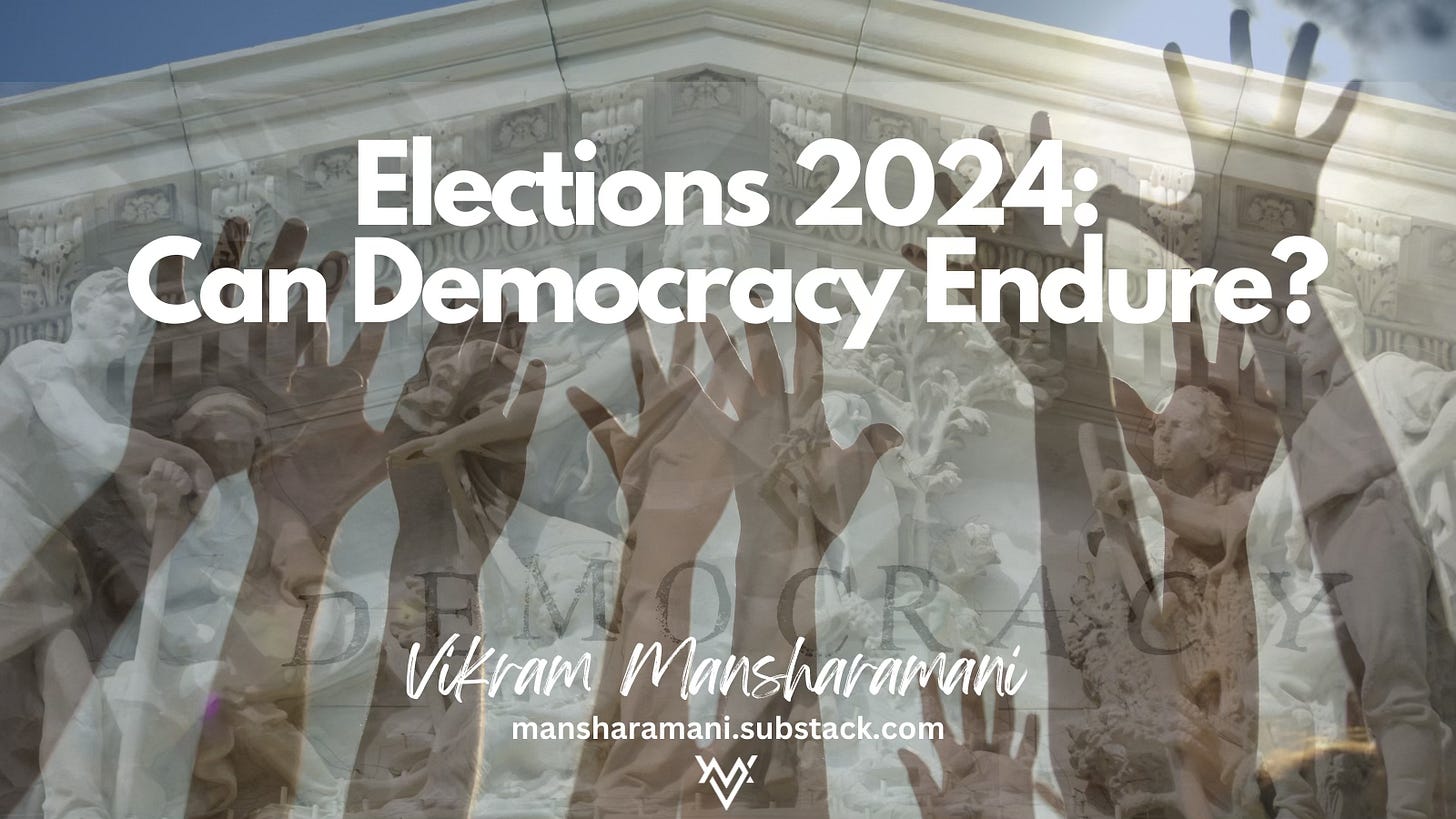Elections 2024: Can Democracy Endure?
This year will be the biggest election year in human history
As the world struggles with the economic and geopolitical chaos produced by the ongoing military conflicts in the Middle East and Europe, persistent inflationary pressures from supply chain disruptions, accelerating artificial intelligence with potential existential risks, and the increasingly obvious breakdown of global multilateralism, there’s another…
Keep reading with a 7-day free trial
Subscribe to Navigating Uncertainty to keep reading this post and get 7 days of free access to the full post archives.


